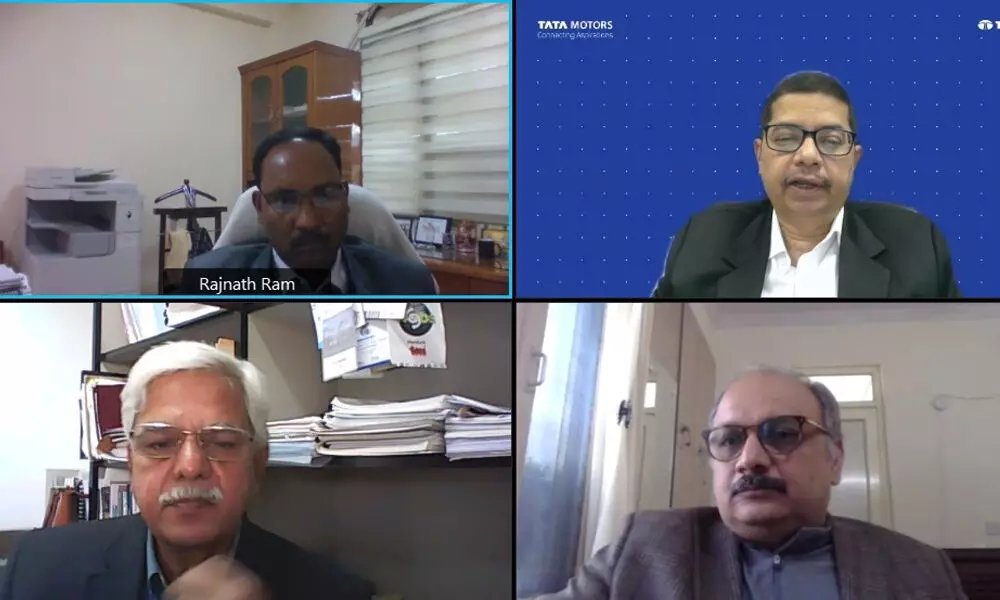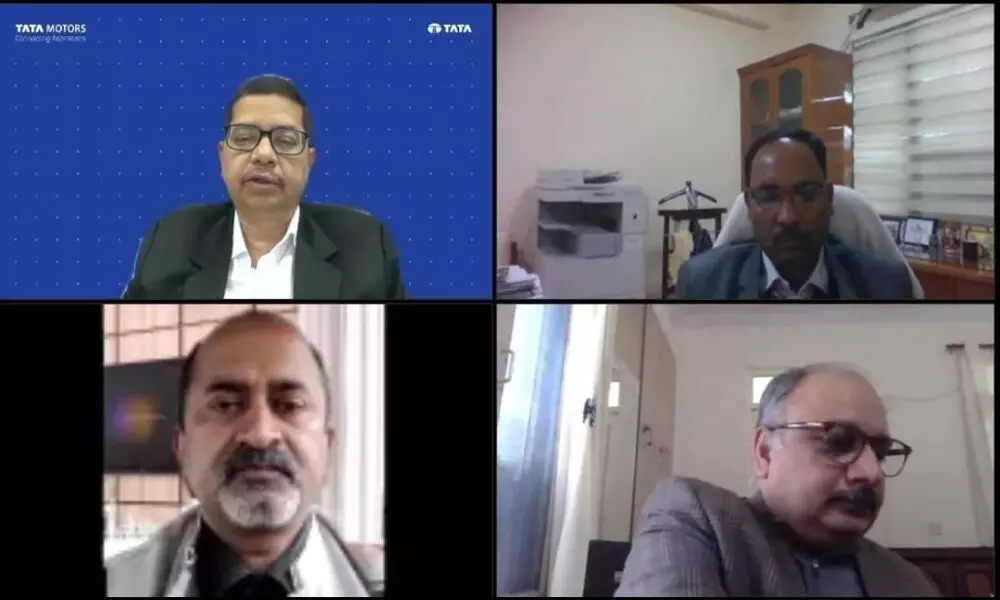Auto industry, experts call for faster adoption to sustainable manufacturing
With green innovations taking a leap in the auto industry, experts have called upon the need to adopt sustainable technology to create low emission vehicles and its allied components.
image for illustrative purpose
New Delhi, Dec 11: With green innovations taking a leap in the auto industry, experts have called upon the need to adopt sustainable technology to create low emission vehicles and its allied components. As transport in India contributes to over 20 percent of carbon emission, experts have reiterated the need adopt electric vehicles and gradually phase out internal combustion engine ice in the forthcoming decades.
On Friday, Society of Indian Automobile Manufacturers (SIAM) hosted 19th lecture series on 'vision sustainable mobility: implications of cop26', with overall focus on decarbonisation, carbon credits, reducing carbon emissions and attaining net zero emission. The lecture saw participation of auto industry experts, government dignitaries, scientist from academia and research institutions, who shared their perspective on the policy, regulatory and legislative frameworks.
Mr. Rajnath Ram, Advisor, Power and Energy, NITI Aayog, stated, "Low emission energy systems are undoubtedly a priority for the country and we are very much committed towards a sustainable future. I truly feel that our experiences can inspire other aspiring countries when it comes to sustainable energy development. Since our transport sector accounts for 20-22% of carbon emissions, decarbonisation of the transport sector is vital. I believe that Zero emission mobility is the future. The growth of EVs will have cascading impact on the economy and biofuels and green hydrogen will play a huge role in this transition."
The NITI Aayog official also stated that India has used 1.3 percent of total carbon space and that global community may accept the principles of dividing carbon space across the nations on a per capita emission basis. "India's share need to be17.5 percent of the total space," he said.
Mr Prashant K Banerjee, Executive Director, SIAM, stated that while Government and OEM's have gathered around to throw light on the auto industry's perspective towards CoP26, discussion on decarbonisation, low carbon strategies and carbon neutrality, form an integral part of India's strategy towards achieving sustainability.
Expert have said that the auto industry is focus on three Rs, namely, Recycling, Reusability and Recoverability as innovating solutions for eliminating waste and minimising the generation of waste at the source itself.
During the course of discussion, Mr R R Rashmi, IAS, Sr. Fellow, TERI, discussed various aspects of energy transition pathways towards Net Zero Emissions & Sustainable Mobility: Challenges and Opportunities' while giving an insight into the future of sustainable mobility in India. Prof Abhishek Malhotra, School of Public Policy, IIT, Delhi and Prof B K Panigrahi, Center for Automotive Research and Tribology, IIT, Delhi, focussed on the implications for the automotive sector with outlining a national perspective.
"The Indian Automobile sector has adopted an environmentally sustainable strategy that meet its energy efficiency goals, be it adopting technologically advanced fuel efficient products or for that matter, non-polluting vehicles. We have been aggressively looking towards lowering carbon footprint and achieving carbon neutrality," said Mr Rajendra Petkar, Co-Chairman, SIAM Sustainable Mobility Group and President and CTO, Tata Motors Ltd
"Many OEMs have set targets keeping in mind India's goal of attaining carbon neutrality by 2070. In the Paris agreement and CoP26 deliberations, there was an increased thrust for adapting and implementing environmentally benefitting imperatives through reduced usage of fossil fuels," he added.



